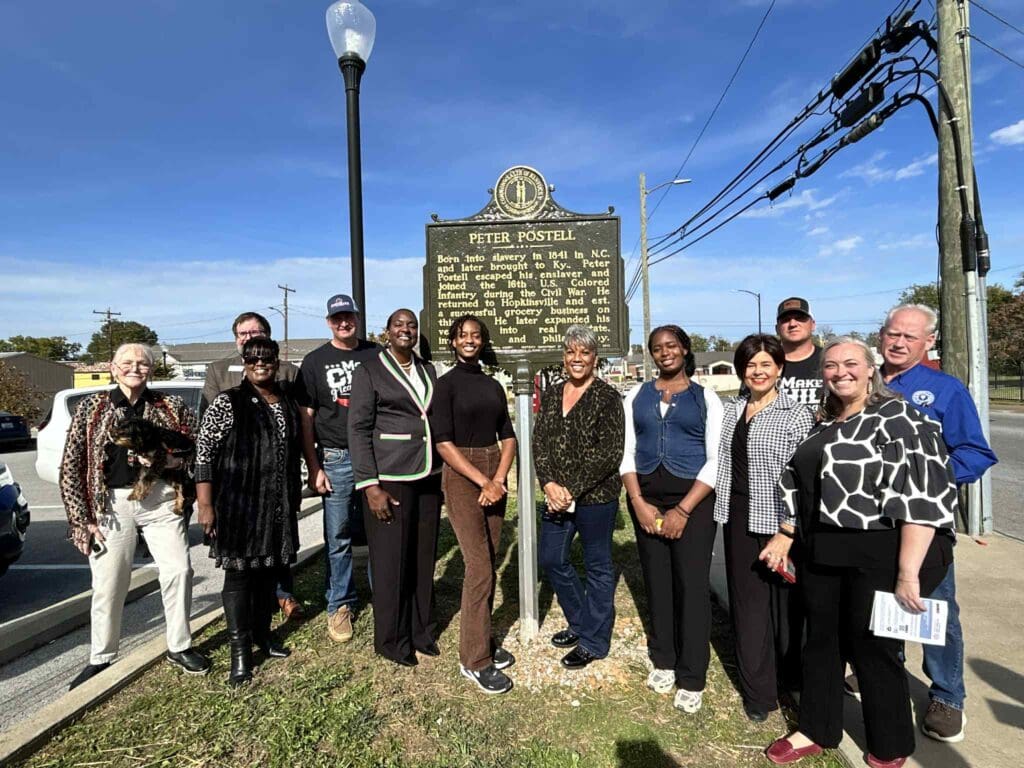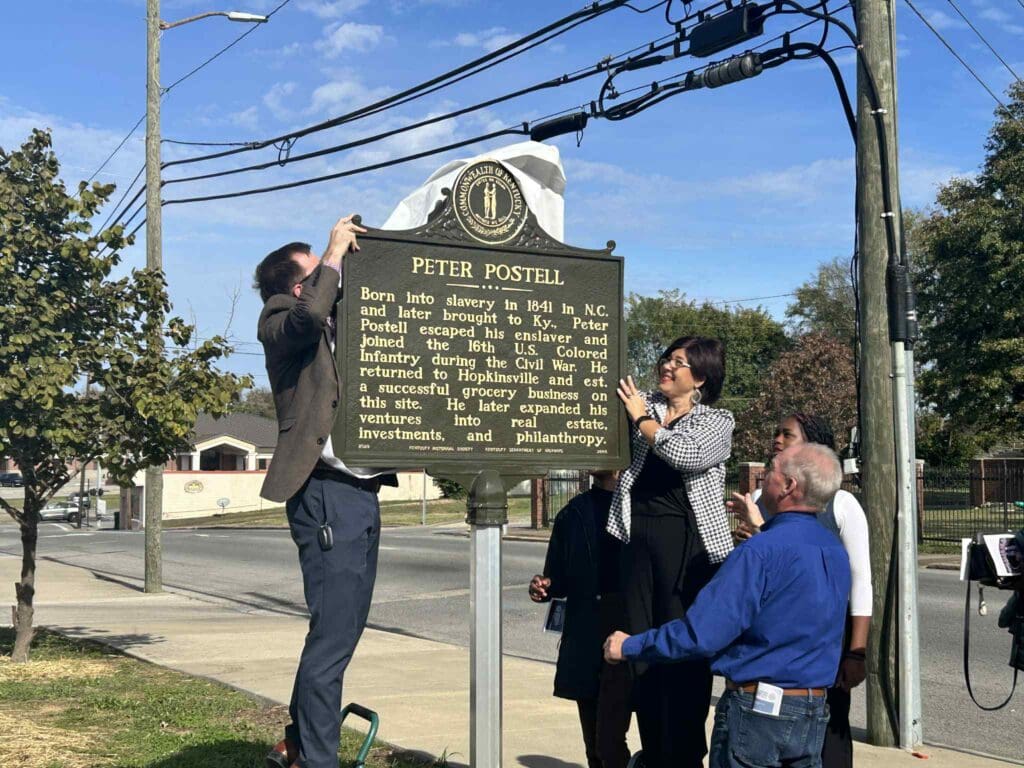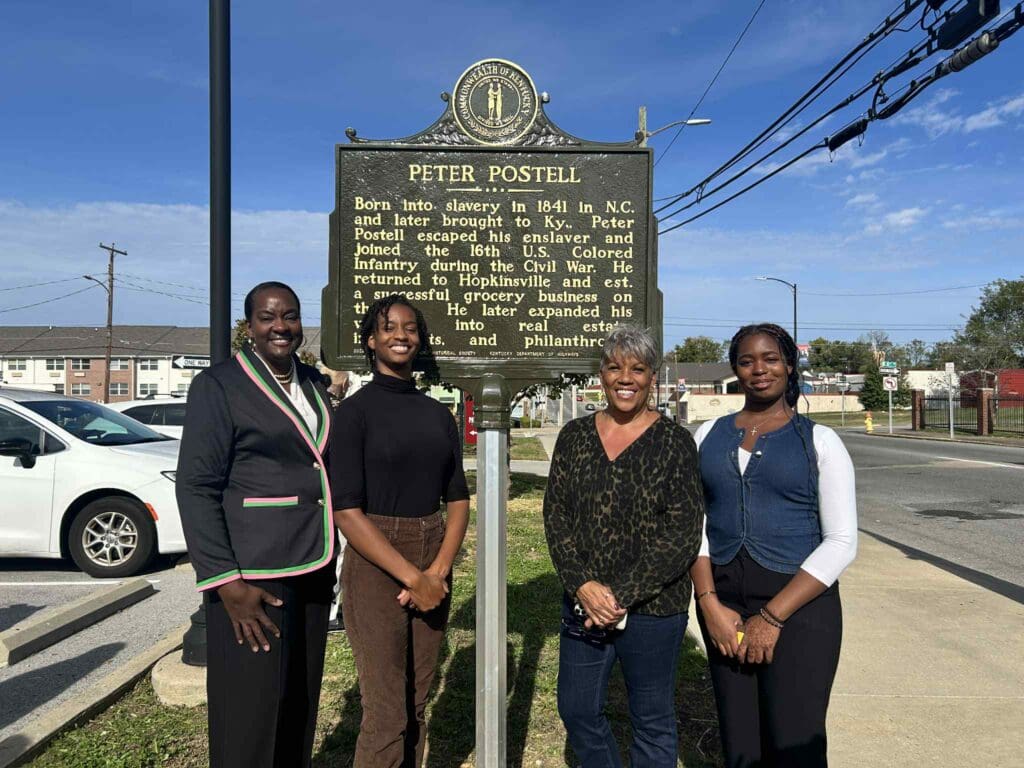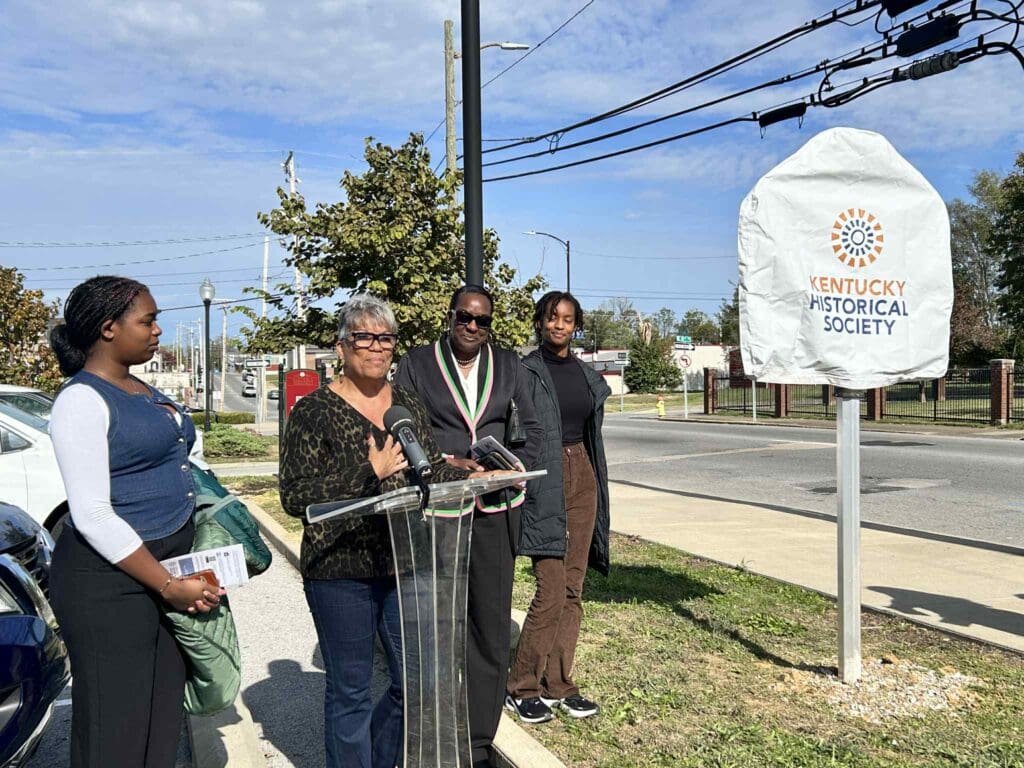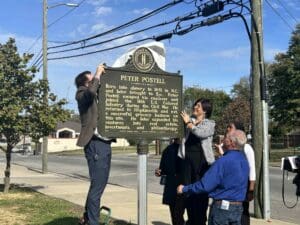In 1841, Peter Postell would be born into slavery in North Carolina—but he would grow into a man that escaped slavery, fought for his and others’ freedoms, and go on to help shape Hopkinsville into what is today.
On Saturday, there was a gathering at the corner of East Sixth Street and South Virginia, where historians, community members, local leaders and the descendants of Postell gathered to unveil Hopkinsville’s newest historical marker, in honor of Peter Postell. That location is where the Postell building once stood, before it was lost to fire in 2016, but at one time, that street was dubbed the “Postell block” and had been built following one of the worst fires in Hopkinsville history.
That fire happened in 1882 and burned around 70 buildings—and according to Museums of Historic Hopkinsville-Christian County Director Alissa Keller, Postell would reopen his grocery store for business in just four days. Within the following year, he would construct a building that would go on not just to house his grocery business, but numerous organizations and medical officers, businesses and benevolent societies—during a time of great adversity.
Postell would also go on to be a great philanthropist, expanding into investments and real estate and would come to be known as the wealthiest Black man in south—and maybe even the country, for his time. And on Saturday, his great-great granddaughters, and two great-great-great granddaughters, stood where he once stood in Hopkinsville.
Paula Carter and Donna Jackson have done extensive research into their ancestor, and Carter says it became difficult at times, because while Peter Postell would come to be known to all, his life had begun as a slave. Postell was sold to a family in Christian County, but he would flee captivity and join the Union Army during the Civil War, where he would fight as part of the 16th Colored Infantry.
After the war, he would free the love his life and wife from slavery, and bring his family back to Hopkinsville, where he would go on to change the very face of the city. Carter says his story is an inspirational one that brings her pride and hope.
She began looking into the history of Postell after learning his story from her grandmother, and that journey led to amazing discoveries, including finding new family.
Now, even though the building is gone, this Kentucky Historical Society marker will stand as a lasting testament to his impact for all the people of Christian County. It’s placement was made possible thanks to a partnership between the Local Development Corporation, Community and Development Services, the Kentucky Historical Society and numerous individuals that all felt that the life and legacy of Peter Postell should never be forgotten.
